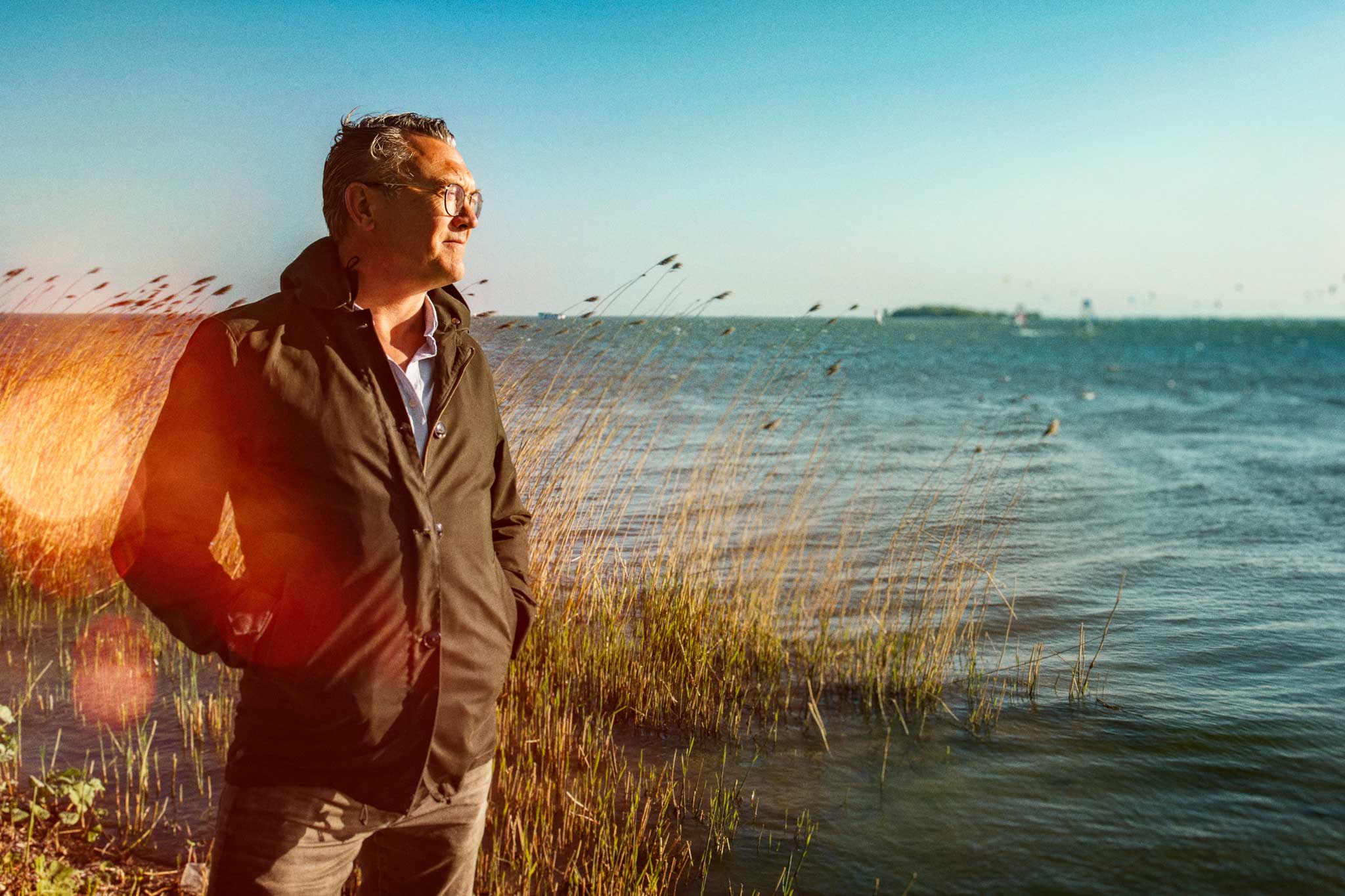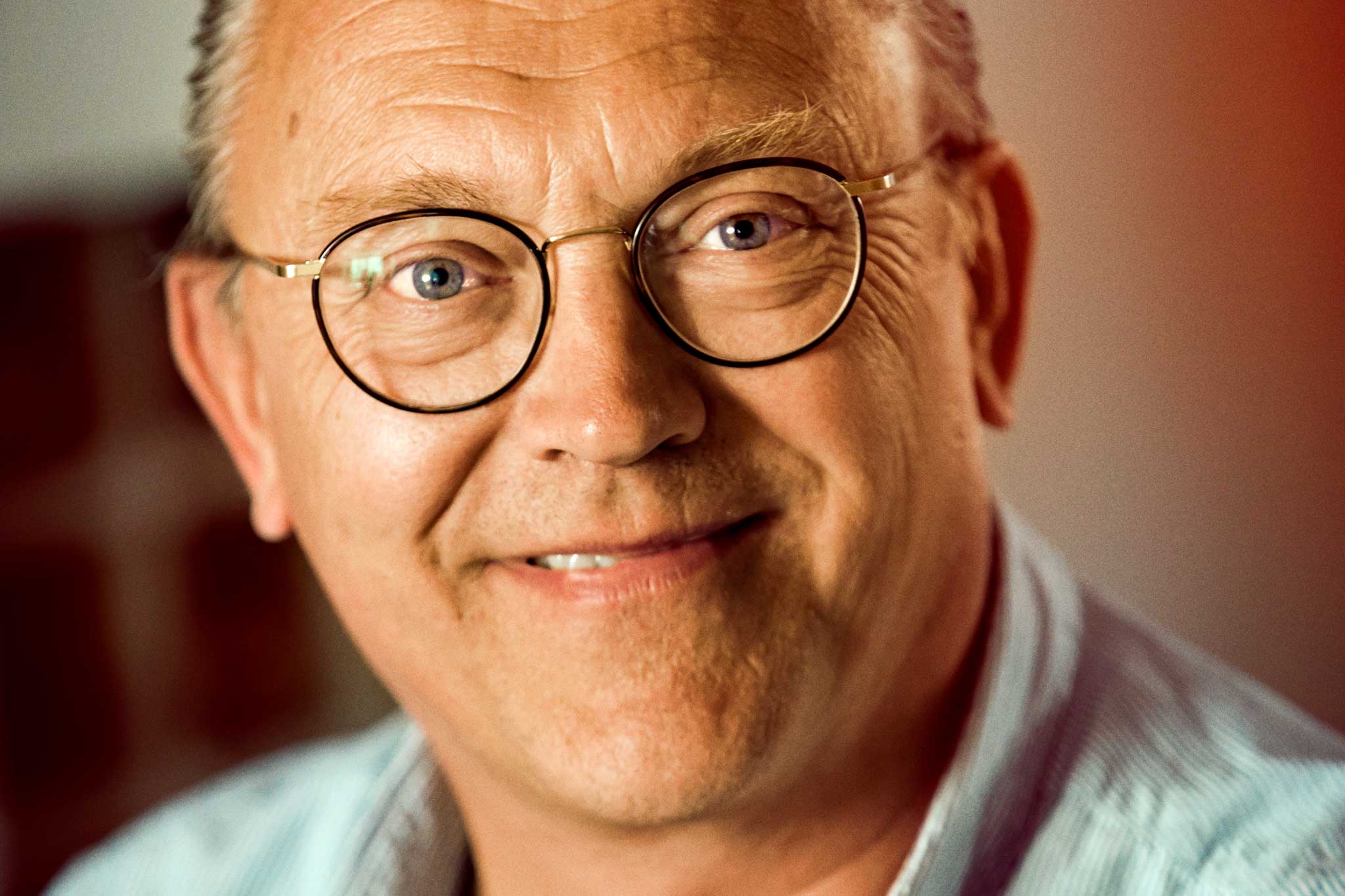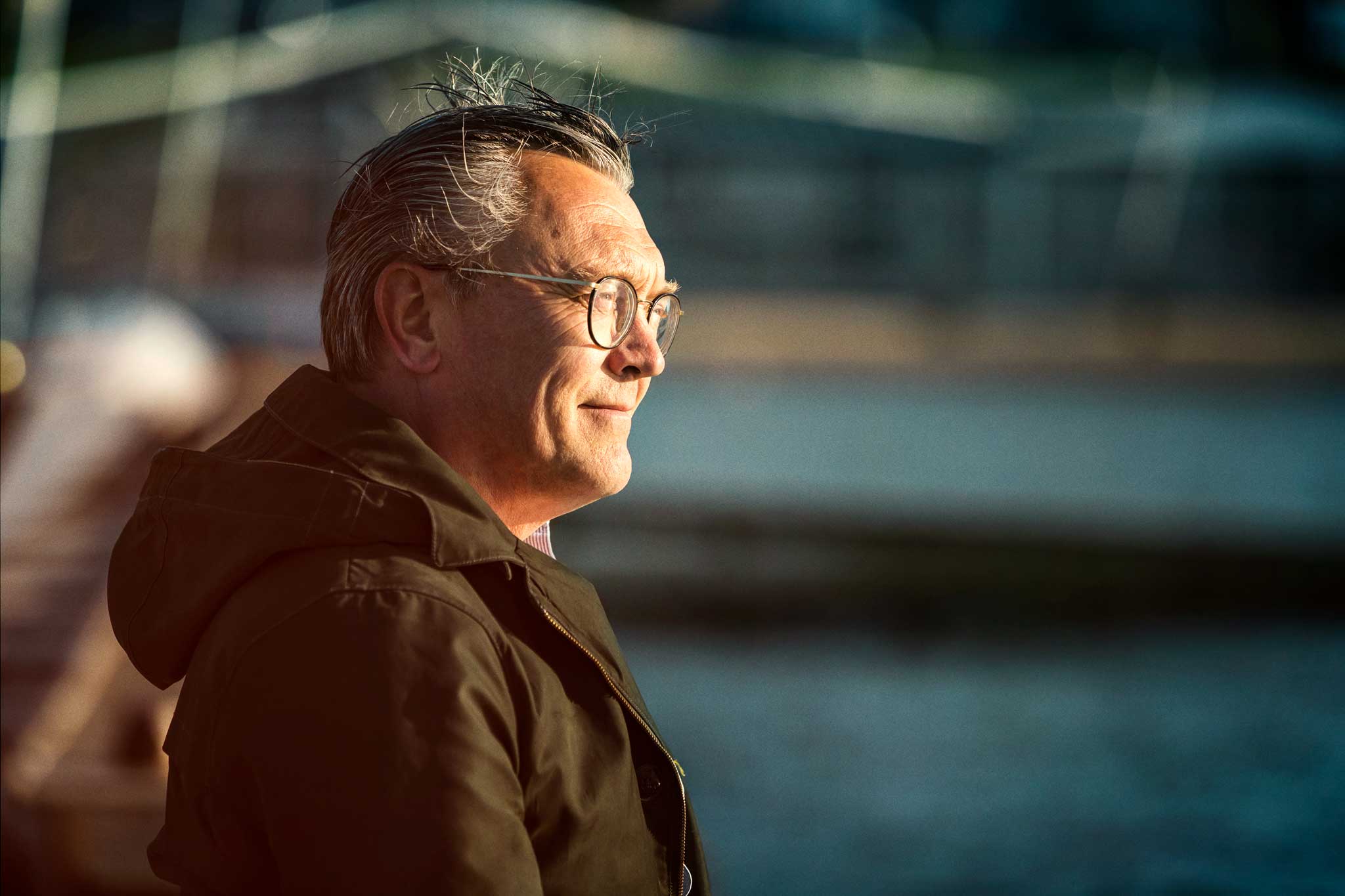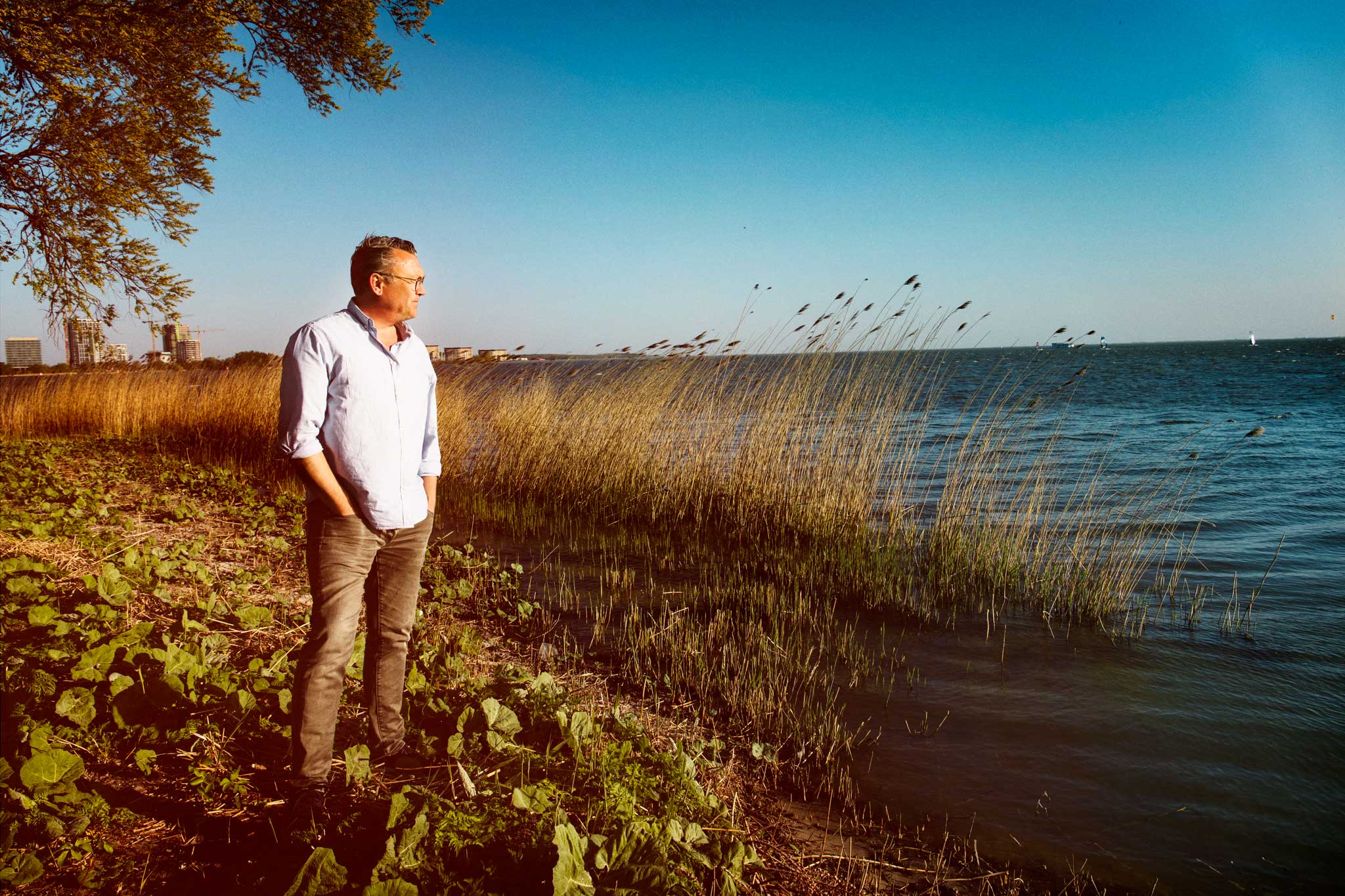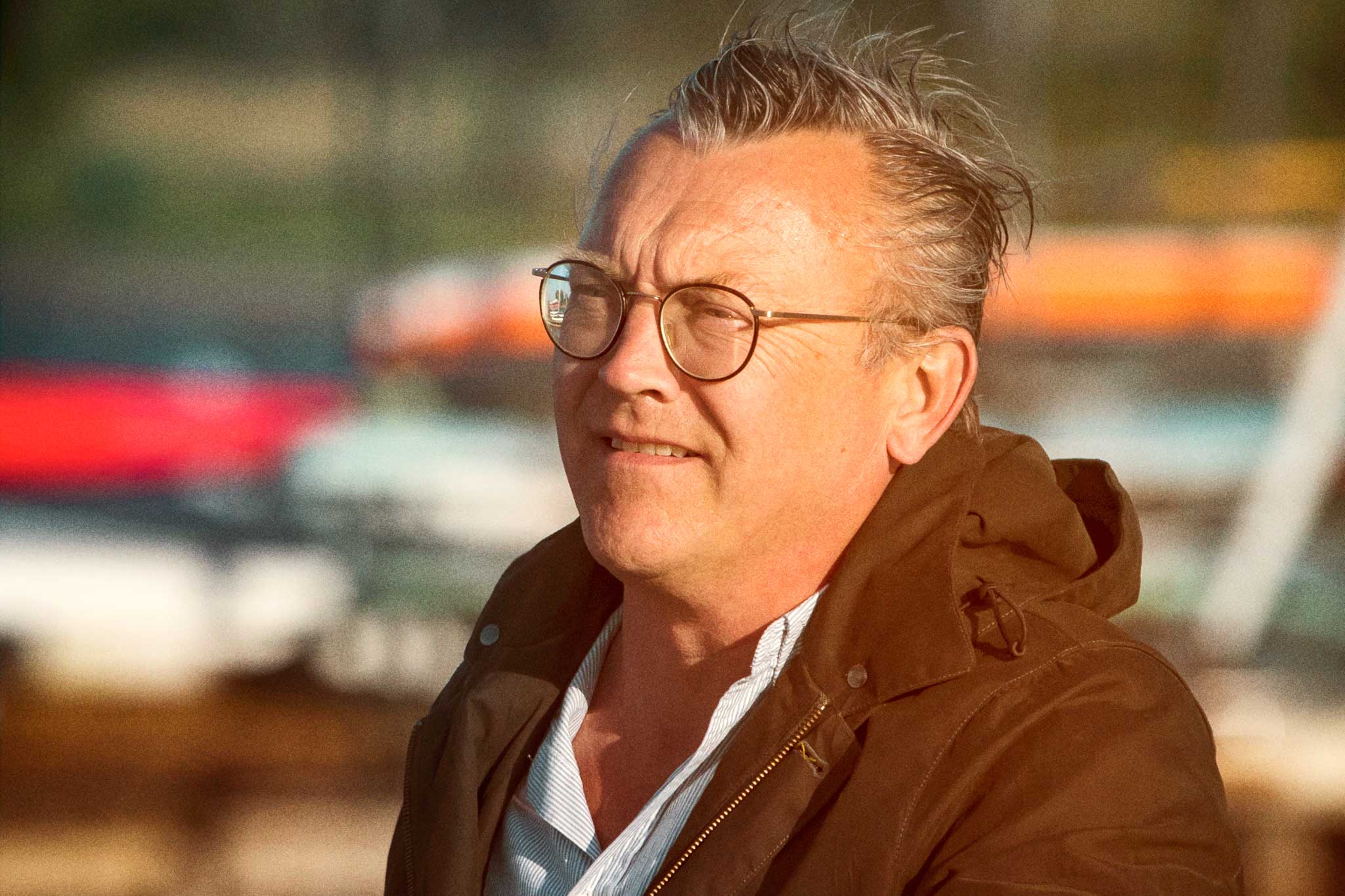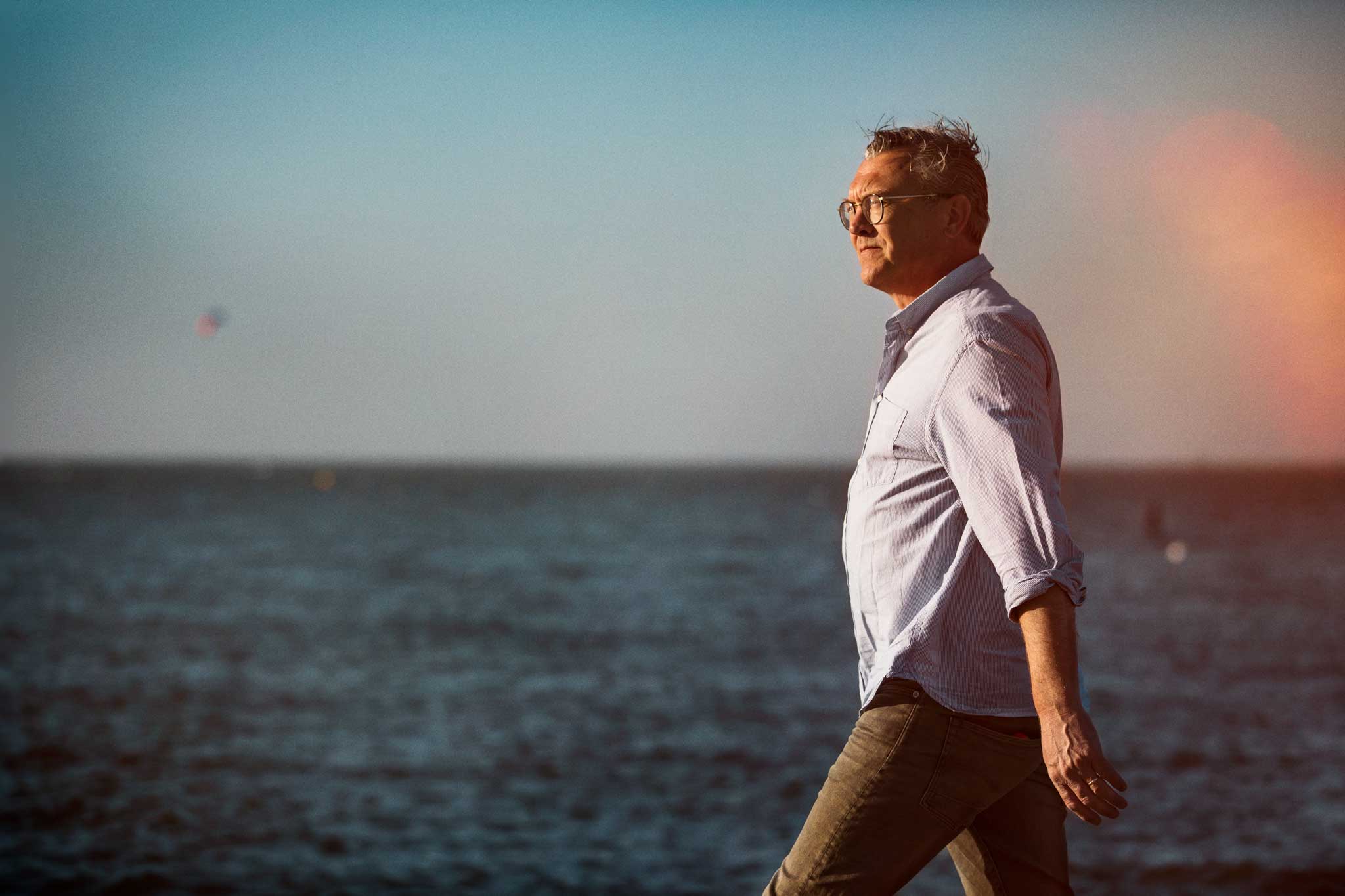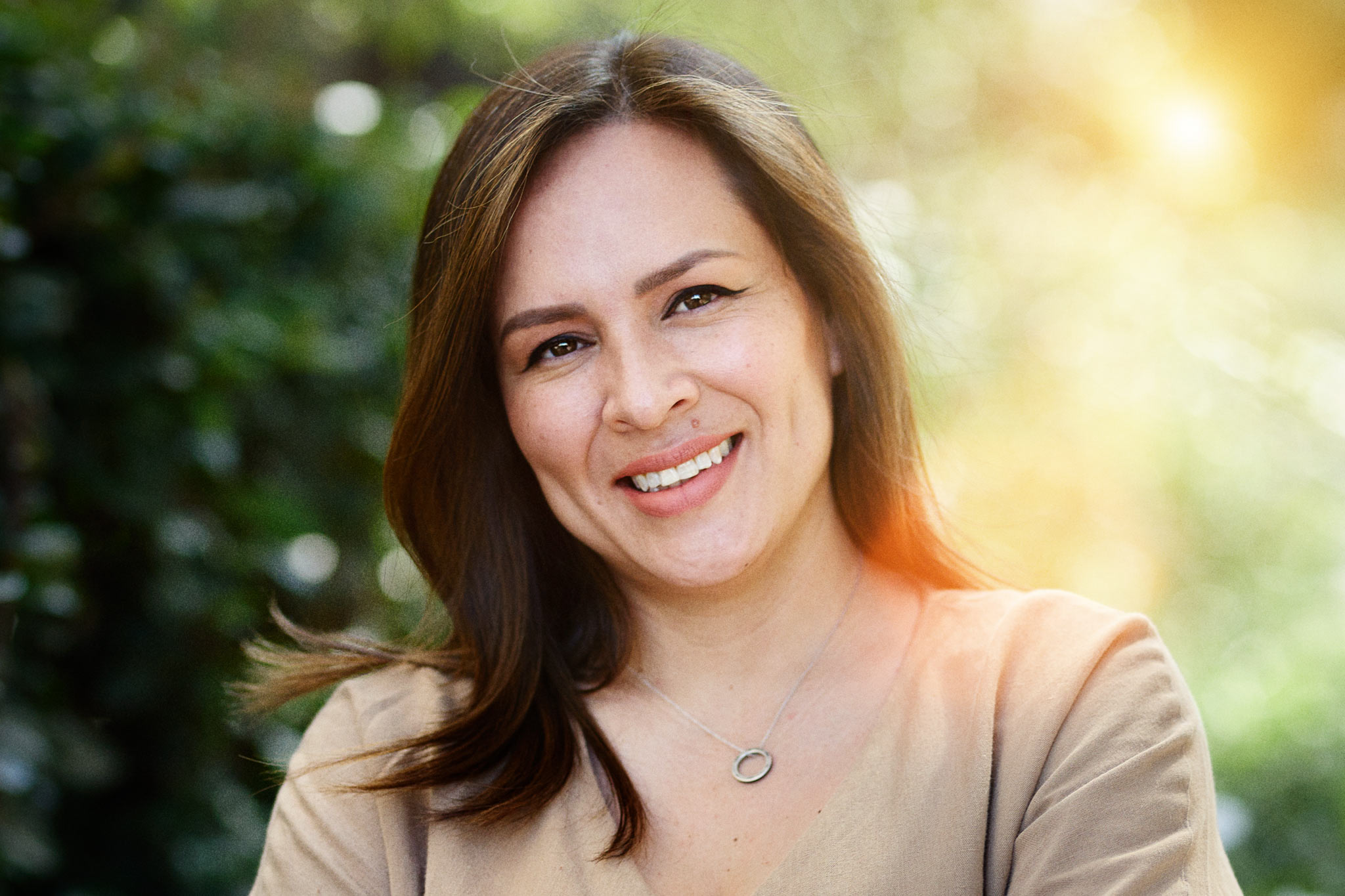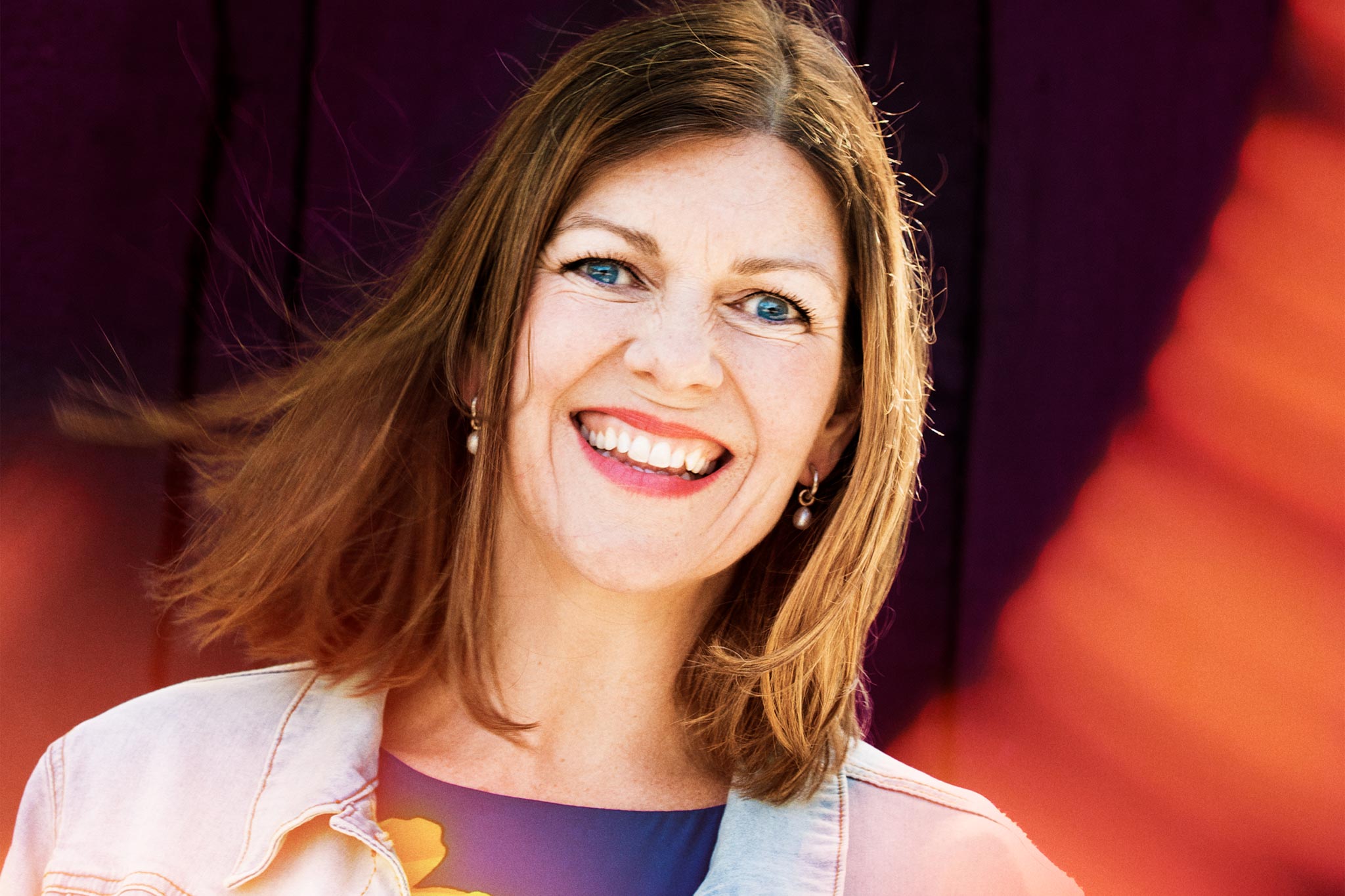The Netherlands Board of Tourism & Conventions (NBTC) is the premier organisation responsible for promoting the Netherlands nationally and internationally. It’s their work to put the country on the map as an attractive destination using their registered brand “Holland.” They focus on the markets for business meetings, conventions and holidays. NBTC receives government funding from the Ministry of Economic Affairs and Climate Policy and cooperates closely with partners within the tourism industry.
Eric Bakermans is the Director of Marketing Meetings & Conventions at NBTC. One of the significant issues for Eric Bakermans and his team is to work together with associations. The department actively seeks contact with Dutch associations and supports them in their bids to host, for example, congresses. The result is a strong bid made by joint forces thus increasing their chances of winning the bid and bringing the conference to the Netherlands.
Eric Bakermans says that NBTC should be the link between the government on one side and commercial partners on the other side, like private venues.
“As a national convention bureau, we are in between. We are here to market the Netherlands as an international meeting and conference destination in which the national part plays the most important role. That’s the reason why we have contributions from the Dutch government. Besides that, we need partners and do things that are important to them, and which also serves the interest of the Netherlands as a conference destination.
“We represent the country, and not only the capital or any larger conference cities. We have access to the government with politicians directly – to either get them involved or to support what we do. And this is something which only we can do. We have direct contact with the Dutch embassies around the world, and can, for example, have smaller events at the residence of Dutch ambassadors.”
The Netherlands has nine top sectors: Agri and Food, Chemistry, the Creative Industry, Energy, High Tech Systems and Materials, Life Sciences and Health, Logistics, Water and Horticulture and Starting Materials. The Dutch Top Sector policy is a modern industrial strategy that stimulates the Dutch knowledge economy. The innovative top sectors are among the world’s best and the government wants to strengthen their international position further. NBTC, through the Ministry of Economic Affairs and Climate Policy, has developed acquisition and marketing strategies which target meetings and congresses that match the scope of any of the Top Sectors and the Sustainable Development Goals.
“Sustainability is one of the so-called pillars of our 2030 perspective”
“If we rely upon the top Dutch sectors, we can build further on the Dutch policy. Exporting knowledge is also related to meetings and conferences – because I can also see a conference or a congress as a way of exporting Dutch knowledge on a specific topic, although the event is taking place inside our country. I think it’s a beautiful showroom to do so.”
Being a national convention bureau NBTC also builds trust with their initiative takers, namely those people who are willing to take the risk of organising an international congress. That is a certain risk and will involve time.
“The people working for an association are well-educated, but they have not learned about marketing a destination to get the best out. That’s what NBTC is a specialist in. We can help each other, and there is no financial interest.
“I am only interested in one thing, and that’s winning the conference, and serving the interests of the association. I know the association is there not for my benefit, but the other way around. We are there for them, and we will help them in the best way possible, in any way possible. It differs per association, of course, without having a hidden or commercial agenda.
“It’s all about the people who make a difference in that destination and who are in a position to attract a meeting or a congress to that destination. These people are the starting engines for hosting congresses and meetings – it’s not just because we have the infrastructure. We need to put these people first. All the hygiene factors and accessibility are important, but these are bare essentials, so we need people to take the step.”
Eric Bakermans says that they work a lot on trust. It’s critical that the convention bureau work with the right, trusted partners. That’s one of the reasons why he is not eager to give away their brand to any private partner. They might use it like a seal of approval, which it is not.
“The professors and the board of the association need to be completely assured that they can trust the convention bureau. And getting in touch with the right person as well. Not only with the professional congress organiser, but with the government, if needed. Trust is also of high importance when it comes to long-term relationships.”
The Department of Economic Affairs and Climate Policy supports NBTC in everything they do.
“International business events delegates spend, on average, 20–25 per cent more than other foreign visitors”
“They are quite aware of what we do and the importance of it in general, as well as meetings and conventions. That is not always the case with other departments.”
An essential part of Eric Bakermans job is to get through to the right person, and to have that person’s knowledge to get the convention bureau further down the lane to either the state secretary or the minister. Sometimes the convention bureau easily gets a letter of support, or the officials sign a bill.
“We too are part of the Dutch policy, and they might think: ‘Okay, we could support not by giving money but by other means.’ So, proving our business case is challenging. However, that’s something we do not keep on knocking. I don’t think that’s anything different than from other destinations. I hope I will get some more time – also via changes within my organisation called NBTC Next – to make our organisation more agile and being able to respond to market changes more quickly.”
Another challenge is to educate the Dutch, in this case, private entities. Eric Bakermans explains that if you are interested or willing to enter the market of international meetings then you should have a financial horizon of at least three to five years. Do not expect any success before that. It’s an investment, and then you will see a return on it, in any way possible.
“We are about knowledge, and not so much about logistics. We have received countless of emails from venues or hotels which are totally in no way capable of hosting a meeting, and they don’t know what it involves. This is also a part of our job, and I think that’s something which is open for improvement from our side too, to educate our industry.
“Yet another challenge is funding, but that’s an open door. It makes you more creative if resources are limited. Sustainability and travelling are a challenge as our industry by definition is a polluting industry. Without saying give up travel, because in the end, why do we have this meeting here? Because we needed to meet each other in person. I know that the phone doesn’t record my facial expressions or that you are nodding. It’s within people’s nature, and this has been happening since humanity was born.”
To cooperate is a part of Dutch culture, and Eric Bakermans explains why. Suitable land to grow crops is scarce in the Netherlands. There is also water almost everywhere, and a large part of the area is below sea level.
“We must work together to keep our feet dry. Do you know the word ‘poldar’? It is formally wetland that may dry. There is now a word ‘poldaring’ which is a way of explaining why the Dutch have to talk all time, or at least be in contact with each other. Otherwise, someone on the other side of the poldar thinks: ‘Oh, I can open the logs’, and then the other side will be flooded. Also, one of the main reasons is because we all need to work together. We need to compromise a lot, and we call it the lack of land.”
At the moment NBTC is working on a 2030 perspective. Mona Keijzer, state secretary for Economic Affairs and Climate Policy, has given the national convention bureau the assignment to come up with an outlook for 2030, on the Netherlands as a destination in the broadest sense of the word. It’s not just about tourism, or meetings and conventions, but in general. It also includes the issues NBTC need to cope with, including spreading arrivals in time and place, over tourism, etcetera.
“Business events have proven to be key drivers to quality visitors. Beyond that, also an important contributor to our knowledge economy”
“It is not necessarily NBTC’s vision, but it is a 2030 perspective which is also valid to our work.”
In the shorter term, there is a Holland Congress Alliance, which is a sustainable collective of four cities, convention centres, Schiphol Airport, KLM Royal Dutch Airlines, as well as a major hotel chain.
“We have worked together for the last five years with investment from all sides towards the international association market. For that, we also have a mission and a vision.”
We have interviewed Eric Bakermans on two occasions. We had one meeting before the outbreak of Covid-19 and one virtual meeting in April during the pandemic.
Which are the three main challenges in your work, creating the future of business events in the Netherlands?
“The Netherlands Board of Tourism & Conventions is all about the development, branding, and marketing of the Netherlands as a destination. Development is, for example, educating emerging destinations in the Netherlands who are interested in developing their city or region for business events. These developments are sometimes also a matter of time and therefore, long-term investments, at first from public sources. It’s not just a matter of joining a few activities in our industry, and business will come in by itself. It’s a matter of building trust, research and the will from private parties too to reach that goal.
“Branding is something else than marketing. Sometimes it’s hard to explain to individual business owners that meeting planners will not be making their choice based only on the fact that there is a venue or service. You need to build the brand first, what makes your destination special and distinctive? And the visible actions are the marketing part, campaigns, activities, content creation etcetera.
“The challenge of it all is that you work with public and private partners, and their interests have to be captured in powerful cooperation. Not always easy, but in times like this the near future will tell if that challenge has been accepted.”
How do the effects of the pandemic crisis affect the strategic plans of your work?
“The line-up is never straight. A strategy is always long-term, but there will be curves and bends on that road. Of course, the current situation is forcing us to adapt to what is happening now and what will be our shorten mid-term offensive action. We are currently working on a sustainable recovery offensive plan to create maximum cohesion with provincial and regional initiatives to revive the visitor economy. This is all in the works as we speak. But there will be a moment in time when this situation is behind us, and we’ll be returning to our long-term strategy to keep the Netherlands liveable, popular and valuable as a business events destination.”
“International business events bring global expertise, and world-best practises to the Netherlands”
What are the plans for the Netherlands at the Expo Dubai 2021?
“The Netherlands will have a pavilion at the Expo and for all the good reasons. The Gulf region is an important area for us. Our companies export for more than eleven billion euro to countries in that part of the world. In the Gulf region are many large investors who also invest their money in the Netherlands. As a result, this is developing our economy as well. Many countries in the region work together with us in other fields.
“The Gulf region is also of great importance to another reason. Countries in the region are also large consumers of freshwater and energy. They import a larger part of their food consumption needs. Their natural resources which have made them rich and prosperous are getting exhausted slowly but surely. How they deal with water, energy and food must change they think. Financial resources are available in abundance, knowledge and skills often not. Dutch companies, scientists and educational institutions do have this available. As a result of this, many opportunities lie ahead.”
How important is sustainability for developing business events in the Netherlands?
“Sustainability is one of the so-called pillars of our 2030 perspective, our long-term vision for the visitor economy – both for leisure travel as well as business events. More visitors are not a driver anymore for some time now, just as going to one place all together at the same time. Business events have proven to be key drivers to quality visitors. But beyond that, also an important contributor to our knowledge economy. Our sector has made big steps when it comes to sustainability. Are we there yet? Certainly not. But a lot is happening. As an organisation, we plea for better connections in Europe by train, for example. Waste management at large venues in the Netherlands has reached a very high standard. Sustainable food options have become mainstream. In other words: Yes, sustainability is fundamental, and it would be strange if it were otherwise.”
International business events delegates spend, on average, 20–25 per cent more than other foreign visitors. Global business delegates have grown at twice the pace of overall visitation over the last four years, while expenditure has increased five times faster. The business events sector also claim that economic activity well beyond directly measurable metrics, underpinning knowledge creation and exchange, innovation and investment, among other positive impacts – economic value referred to as ‘beyond tourism’ benefits. International business events bring global expertise, and world-best practises to the Netherlands. How important is this for your country?
“My answer is already given in your question. The fact that Meetings & Conventions form an integral part of the assignment from the Department of Economic Affairs and Climate towards my organisation is, in fact, a token of their interest to co-invest in our approach. Combine this with our other stakeholders in our industry, and you will see that this value is very much acknowledged.”
“The challenge of it all is that you work with public and private partners, and their interests have to be captured in powerful cooperation”
How do you measure the economic impact of business events? What kind of challenges do you have to tackle?
“We know quite well what the direct economic value is. However, it is my deepest wish and goal also to be able to measure the ‘beyond tourism’ added value. In what way and into what extend is the impact to be measured when it comes to our knowledge economy. This has proven to be a very complicated matter. One or two European destinations have published useful data from which we can learn too. Still, it’s something which will involve a huge series of interviews, educational guesses, time and above all money to conduct an overarching research effort. And this is where the shoe pinches. It’s a project which requires a long-term perspective. Measuring and charting indirect societal and economical impact will involve several years. Commercial entities do not have a direct interest gain on this, so it’s something which consists of the involvement of public organisations.”
How important is your network overall for your development of new knowledge?
“I am in particular proud of my collaboration with my European peers, united in the Strategic Alliance of the national convention bureaux of Europe. Together with co-founder Matthias Schultze, the Managing Director of the GCB German Convention Bureau, we have achieved already a lot, and we also find each other united when it comes to projects now and in the future.
“Secondly, it’s our partner network in the Netherlands. The city convention bureaux, the hotels, venues, DMC’s and PCO’s have proven to be very loyal to us and each other over the past 20 years. It’s always a sheer joy when we are abroad to market the Netherlands as a business events destination.”
What do you think will happen in five to ten years when it comes to business events in the Netherlands?
“It is my firm belief that the Netherlands is not an island as a matter of speech. We’re part of something bigger, and we’re used to doing business worldwide. We must; it is in our DNA. So, developments in our branch will not be limited to just the low lands. Our community is not isolated but part of a European and global network. We’re facing challenges in many fields that are just the same in countries around us. Look at developments in technology, demography, mobility and sustainability. The current corona crisis will most certainly have an impact on the business events industry. The recovery process alone is going to take months if not longer. Unprecedented and disruptive, but we must and will overcome. Or better said, as in the motto of our Dutch province Zeeland: ‘We struggle and emerge’.”


